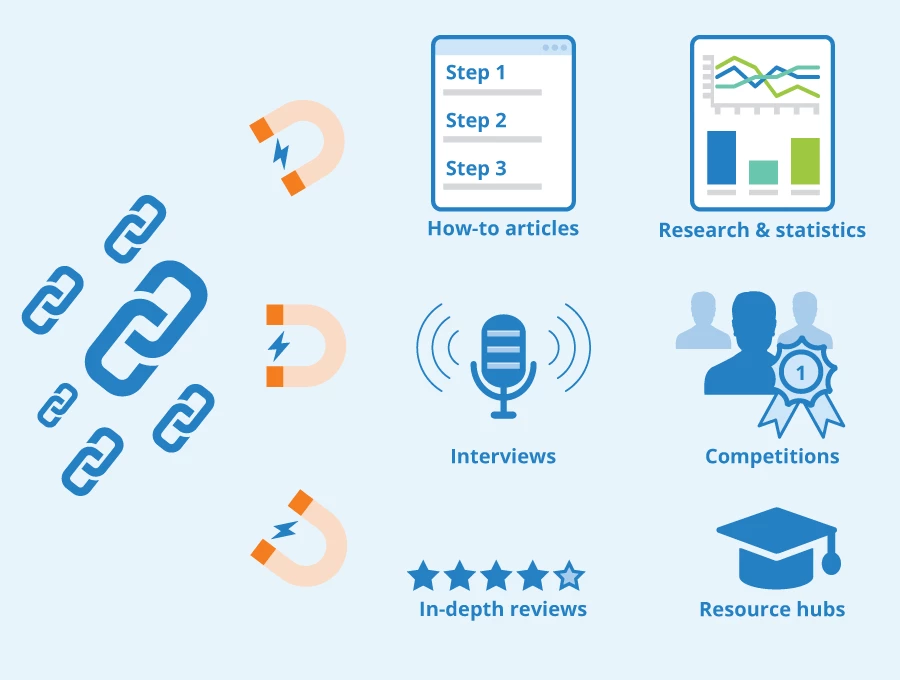Business
Stylish Rigid Packaging Boxes to Fit Every Sort of Products
Moreover, brands can print vital information and lively patterns in any color on wholesale rigid boxes.

Brands can get luxurious packaging for their products by using rigid packaging boxes. These are made of hard paper materials to offer maximum protection and firmness to the inside products. The solid surface of rigid packaging gives a professional feel to the products. Furthermore, these boxes are customizable per order. No matter if you want to package electronics, perfumes, cosmetics, apparel, ornaments, or any other expensive item, these packaging boxes are the perfect fit. One can choose from a variety of options, such as printing and embellishments like foil stamping, embossing, debossing, or coatings to increase the charm of packaging. Despite their rigid natures, they are still recyclable and add no packaging waste to the environment.
Creative Shapes Lure More Customers
A square or rectangular packaging box comes to mind when one thinks of custom rigid packaging. Brands usually get these shapes when putting together their product packaging. However, if you want to create more luxurious and innovative packaging for your brand, it is best to modify the shapes and sizes of rigid packaging boxes. Other than that, it is important to design packaging that helps distinguish your brand from the rivals roaming in the market. Some of the most popular packaging options include round boxes, hexagonal boxes, cylindrical boxes, pyramid boxes, and sleeve rigid packaging boxes.

Unique Window and Die-Cut Patterns
Window cuts on the rigid packaging boxes can give customers a sneak peek into the inside product via a transparent PVC sheet. Transparency introduces an innovative touch to the product display and encourages customers’ purchase decisions. Moreover, one can embellish window panes using ribbons or introduce a brand logo or name. Using the transparent PVC sheet, you can create different displays for different products. The adorable products will stand out more on store shelves and counters among rival products. The toys, apparel, as well as luxury cosmetics, look more valuable inside rigid packaging. Rigid window boxes ease customers in many ways. Take the example of ties, the customers can look through the window cuts and decide which tie they want without opening the packaging boxes. It will save you time and also prevent damage to products.
Custom Rigid Boxes with Inserts
Rigid packaging containing custom inserts is an effective way for a brand to secure its products. It also ensures that when the customers open the packaging, they will see everything in its proper and best form. Giving a luxurious touch to your brand’s display packaging using inserts make your brand stand out from the crowd. One can also print the inserts to enhance the outlook of the packaging. Additionally, you can also emboss or deboss your brand’s logo on the inserts to add a touch of branding. Retail stores as well as brand owners get Wholesale Rigid Boxes to package luxury products. Inserts will hold the products in place and popularize the brand. For example, one can place premium ornaments inside the inserts. Moreover, the royal fragrance also looks more valuable inside the insert of rigid packaging.
Magnetic Closure Design of Rigid Packaging
If you want extraordinarily luxurious packaging the custom rigid packaging with magnetic closure is here for you. The magnetic closures ensure that products remain safe in the packaging boxes during the shipment. The magnetic style provides extra protection to the product packaging boxes.

One can embellish this magnetic closure using some ribbon, thread, or button. It not only looks adorable but also is easy to use. As a result, the customers will enjoy mesmerizing unboxing experience. Such kinds of wholesale rigid boxes come in drawer-style boxes, flap boxes, or other boxes of such sorts.
Prints That Advertise Your Brand
Marketing the brand is a crucial step that requires a lot of consideration to overcome all the hurdles on the way. After manufacturing high-end products, you should never package them in dull and ordinary packaging boxes. The printed rigid packaging not only enhances products’ worth but also promotes your brand if you print the brand label on it.
Read More: What Are The Best Benefits Of Filing Cabinets?
One can get these boxes in white, black, or any other color per preference. The colors of wholesale rigid boxes will tell the brand’s story and advertise it. One can print the brand logo in the middle or side of the rigid product boxes using embossing, debossing, coloring, or foiling techniques. These techniques are also helpful in making rigid gift boxes to package presents.
Colorful Rigid Packaging Boxes
Strong layers with amazingly vibrant colors are the perks of custom rigid packaging boxes. These boxes appear similar to cardboard product boxes when we talk about their quality. They are also easy to color per your orders using CMYK and PMS color models. On top of that, one can apply matte, glossy, or UV spot coating on the rigid packaging.
The polishing of these boxes gives a more premium and professional outlook to the packaging. Moreover, brands can print vital information and lively patterns in any color on wholesale rigid boxes. Due to these benefits, these boxes are more attractive and professional than other types of packaging boxes especially when it comes to the packaging of expensive products. Additionally, the coating finishes of these boxes make them more exclusive and eye-captivating to attract more customers.

Business
How Businesses Can Foster Safe and Inclusive Workplaces

What Is a Safe and Inclusive Workplace?
Creating a safe and inclusive workplace is an ongoing commitment that requires intentional policies, continuous education, and accountable leadership. When organizations prioritize respect, equity, and psychological safety, employees are more engaged, productive, and innovative. Integrating wellness resources, such as opportunities to learn about nutrition Clarkston, MI, further supports employees’ overall well-being and reinforces a culture of care. By measuring progress, addressing challenges proactively, and embedding inclusion into everyday practices, companies comply with legal standards and cultivate a culture where everyone can thrive—driving long-term success for both people and the business.
Why Company Culture Matters
A company’s culture is the collective personality that shapes how people interact, collaborate, and solve problems. Company culture is rooted in visible behaviors, day-to-day operations, written values, and the subtle ways leaders and colleagues interact. An inclusive culture championed by management sets a positive tone and signals to staff that respect, equity, and fairness are non-negotiable values.
A positive culture makes it easier for people of all backgrounds and abilities to feel seen and heard. Leaders who uphold these principles ensure that everyone, from interns to executives, understands what inclusion looks like in everyday situations.

Building Effective Policies
Robust, visible policies underpin successful, safe, and inclusive workplaces. These must extend beyond anti-discrimination language to address the diverse needs of employees, such as accommodations for religious practices, disabilities, gender identity, and parental responsibilities. Policies should be developed with input from employees and subject-matter experts to ensure they are practical, relevant, and current.
- Clearly define what safety and inclusion mean for your business and sector.
- Create straightforward reporting procedures, ensuring every team member knows how and where to report issues.
- Outline fair investigation processes and consequences for policy violations to reinforce accountability.
- Review all policies annually and communicate updates regularly to reinforce expectations.
To foster trust, ensure that all documents are easily accessible and comprehensible, and provide training that enables policies to be effectively implemented in real-life situations.
Training and Education Programs
Continuous education is essential for changing mindsets and behaviors. Training efforts focusing on diversity, equity, and inclusion should go beyond awareness-raising, helping team members understand how to call out exclusionary practices and become effective allies. Regular workshops, simulations, and discussions of real-world scenarios ensure that information sticks and leads to lasting change.
Leadership and Accountability
Leadership’s role is critical in setting expectations and modeling desired behaviors. Senior management and supervisors must be trained to recognize unconscious biases, address issues swiftly, and celebrate team successes related to inclusion. Regular performance reviews that assess leadership’s inclusivity ensure ongoing commitment.
Transparency in how issues are handled and shared success stories fosters a sense of collective responsibility. When accountability is embedded at all levels—from frontline workers to executives—employees understand that safe and inclusive behavior is a non-negotiable standard.
Measuring Progress and Success
Determining if policies and programs are effective starts with clear targets and ongoing evaluation. Many organizations use employee surveys, pulse checks, or third-party audits to collect meaningful qualitative and quantitative feedback. These insights reveal whether staff feel safe and valued and can surface areas requiring further improvement.
Regularly sharing progress fosters transparency and trust, making clear that employee voices directly shape company priorities.
Common Challenges and Solutions
Roadblocks may arise during efforts to build a safe and inclusive environment. Resistance to change, a lack of resources, or legacy behaviors can create setbacks. Overcoming these challenges requires intentional communication, dedicated resources, and ongoing reinforcement of the business case for inclusion.
- Resistance to Change: Address skepticism with transparent communication and real-life workplace benefits.
- Unconscious Bias: Combat through tailored training sessions and reflective leadership assessments.
- Resource Constraints: Start small by celebrating early wins and leveraging free external toolkits and resources.
Keeping communication channels open and fostering psychological safety helps sustain engagement and momentum, helping organizations stay adaptable in a changing landscape.
Final Thoughts
Creating a safe and inclusive workplace is an ongoing commitment that requires intentional policies, continuous education, and accountable leadership. When organizations prioritize respect, equity, and psychological safety, employees are more engaged, productive, and innovative. By measuring progress, addressing challenges proactively, and embedding inclusion into everyday practices, companies comply with legal standards and cultivate a culture where everyone can thrive—driving long-term success for both people and the business.
Business
5 Success Stories from Leading Logistics Marketing Agencies

In today’s rapidly evolving marketplace, logistics marketing agencies play a crucial role in bridging the gap between supply chain efficiency and customer engagement. These specialized firms leverage a deep understanding of the logistics sector, utilizing innovative strategies to help companies maximize their reach and drive growth. Here, with the increasing complexity of global trade, the demand for adept marketing tailored specifically to the logistics industry has surged here today’s rapidly evolving marketplace, logistics marketing agencies play a crucial role in bridging the gap between supply chain efficiency and customer engagement. These specialized firms leverage a deep understanding of the logistics sector, utilizing innovative strategies to help companies maximize their reach and drive growth. Here, with the increasing complexity of global trade, the demand for adept marketing tailored specifically to the logistics industry has surged.
These agencies are not just about promoting services; they are data-driven, crafting campaigns that resonate with target audiences while enhancing brand visibility. From search engine optimization (SEO) to targeted digital advertising, they employ a range of techniques to ensure that logistics companies stand out in a crowded marketplace.
As we delve into the success stories of various logistics marketing agencies, we will uncover how they have transformed their clients’ operations, enhanced their online presence, and ultimately driven significant business outcomes. By showcasing these achievements, we aim to highlight the invaluable role logistics marketing agencies play in the modern business landscape, making them indispensable partners for companies striving to thrive in this competitive environment.
Importance of Marketing in the Logistics Industry
In the increasingly competitive logistics industry, effective marketing is not just a luxury — it’s a necessity. The nuances of this sector demand a strategic approach that combines traditional marketing techniques with advanced digital strategies. As logistics firms strive to differentiate themselves, marketing becomes the driving force behind brand recognition and customer loyalty.
One of the primary roles of marketing in logistics is to educate potential clients about the complexities and benefits of various services. With rapid technological advancements and shifting consumer expectations, agencies that effectively communicate their value propositions can capture market share and establish trust.
Moreover, targeted marketing campaigns help logistics companies to reach niche markets and tailor their offerings accordingly. By leveraging data analytics, agencies can identify customer pain points and provide solutions that resonate with specific audiences.
Finally, a strong marketing presence enhances a company’s reputation in an industry often plagued by misconceptions. By showcasing success stories and transparent operations, logistics firms can build credibility and foster long-term relationships. In essence, marketing is not merely an add-on; it’s the backbone of growth and sustainability in the logistics landscape.
Overview of Success Stories
In the ever-evolving landscape of logistics, marketing agencies have emerged as pivotal players, transforming how companies connect with their audiences. These success stories highlight innovative strategies that have led to remarkable growth and brand recognition, with the specific agencies involved remaining undisclosed due to NDA agreements.
One standout example involves a mid-sized freight company that, with the help of a specialized marketing agency, revamped its digital presence. By implementing a targeted SEO strategy and launching engaging content campaigns, they saw a 150% increase in organic traffic within six months.
Another success story features a logistics startup that harnessed the power of social media advertising. Through compelling visuals and customer testimonials crafted by their marketing partner, they not only amplified their brand visibility but also achieved a 300% increase in lead generation within a year.
Additionally, a renowned global shipping firm collaborated with a marketing agency to enhance customer engagement through personalized email campaigns. The result? An impressive 45% boost in customer retention rates.
These narratives illustrate the profound impact that strategic marketing initiatives can have on logistics businesses, driving growth, fostering innovation, and ultimately reshaping the industry landscape.
Case Study 1: Innovative Strategies from Agency A

Agency A has redefined success in the logistics marketing arena through a blend of innovative strategies that cater specifically to the unique challenges of the industry. One standout initiative involved a comprehensive digital transformation project for a mid-sized freight company struggling with visibility and market penetration.
Recognizing the importance of data-driven decisions, Agency A implemented advanced analytics tools to assess customer behavior and identify key pain points. This insight laid the groundwork for a targeted content marketing strategy that included informative blogs, engaging videos, and interactive webinars, tailored to educate potential clients on industry trends and best practices.
To complement this content strategy, Agency A leveraged social media platforms, creating a robust online presence that allowed the client to connect directly with their target audience. A series of compelling case studies showcasing successful logistics solutions further established the client as a thought leader in the space.
The results were impressive: within six months, website traffic surged by 150%, and lead generation doubled. Agency A’s innovative approach not only improved brand visibility but also fostered lasting relationships, proving that thoughtful marketing can transform logistics businesses in a competitive landscape.
Case Study 2: Transformative Campaigns by Agency B
Agency B, a trailblazer in logistics marketing, recently executed a transformative campaign for a mid-sized freight company struggling to stand out in a saturated market. The agency initiated a thorough market analysis, identifying key pain points within the target audience — specifically, the need for transparency and reliability during shipment processes.
With insights in hand, Agency B crafted a multi-platform strategy that prominently featured customer testimonials and real-time tracking features. They launched an engaging social media campaign showcasing behind-the-scenes operations, which humanized the brand and built trust with potential clients. The campaign’s centerpiece was an interactive website redesign that emphasized user experience, allowing clients to easily access shipment status and logistics updates.
The results were remarkable. Within six months, the freight company saw a 40% increase in website traffic and a 25% boost in lead generation. Most impressively, customer retention rates improved significantly, as clients felt more connected and informed throughout the shipping journey. Agency B’s innovative approach not only transformed the freight company’s brand image but also set a new standard for customer engagement in the logistics sector, demonstrating the power of targeted, transparent marketing.
Case Study 3: Data-Driven Success from Agency C
- Increased Website Traffic: A 150% surge in monthly visitors due to optimized SEO and strategic content marketing.
- Lead Generation: The campaign generated a 200% increase in qualified leads within just three months.
- Conversion Rates: The brokerage saw a 35% rise in conversion rates, directly linking data-driven personalization to successful customer engagement.
- Cost Efficiency: By reallocating budget to high-performing channels identified through analytics, the client reduced their customer acquisition cost by 25%.
- This case exemplifies how Agency C’s data-driven methodologies not only foster growth but also empower logistics companies to make informed decisions that drive long-term success.
Case Study 4: Creative Branding by Agency D
Agency D took a bold step in redefining its client’s brand identity, which was struggling to resonate in an increasingly competitive logistics market. The agency embarked on a comprehensive rebranding campaign that highlighted the company’s commitment to sustainability and innovation.
Through meticulous market research, Agency D discovered that their client’s target audience was particularly passionate about eco-friendly practices. Leveraging this insight, they crafted a striking new logo and a vibrant visual identity that incorporated green elements and modern typography. The campaign’s centerpiece was a digital storytelling initiative, showcasing the logistics company’s journey toward sustainability through engaging video content and infographics.
This multifaceted approach not only revamped the brand’s image but also created a community around its values. The result? A remarkable 40% increase in brand engagement on social media platforms and a 30% rise in customer inquiries within just six months. Agency D’s creative branding efforts not only repositioned the client as a leader in sustainable logistics but also fostered lasting connections with environmentally-conscious consumers. This case highlights how innovative branding can transform perceptions and drive tangible results in the logistics sector.
Case Study 5: Technology Integration by Agency E
In an era where technology dictates market dynamics, Agency E has revolutionized logistics marketing through strategic technology integration. By leveraging advanced analytics and AI-driven insights, Agency E transformed a traditional freight brokerage into a tech-savvy logistics powerhouse.
The agency embarked on a comprehensive data-driven campaign that incorporated machine learning algorithms to predict shipping trends and optimize routes. This not only enhanced operational efficiency but also significantly reduced costs for their clients. By integrating a user-friendly digital platform, they provided real-time tracking capabilities, allowing customers to monitor their shipments with unparalleled transparency.
Additionally, Agency E implemented a customer relationship management (CRM) system tailored to the logistics sector, enabling personalized communication and targeted marketing strategies. This integration led to a 40% increase in customer engagement and a dramatic rise in repeat business.
The success of this initiative is reflected in the agency’s remarkable 30% growth in revenue over just one year. By marrying logistics with cutting-edge technology, Agency E has set a benchmark for the industry, proving that innovation is key to thriving in a competitive landscape. Their story serves as an inspiration for other logistics marketing agencies looking to harness the power of technology for success.
Key Takeaways from the Success Stories

The success stories from leading logistics marketing agencies reveal several key takeaways that can inspire others in the industry. First and foremost, the importance of data-driven decision-making stands out. Agencies that leverage analytics to tailor their strategies consistently outperform those that rely on intuition alone. This data-centric approach not only enhances targeting but also improves ROI.
Additionally, effective storytelling plays a crucial role in connecting with clients. Agencies that have mastered the art of narrative can vividly convey their brand’s value proposition, fostering trust and engagement. This emotional connection often translates into long-term client relationships.
Moreover, the adaptability of these agencies in the face of market changes highlights the need for agility. Those that pivot quickly in response to evolving consumer demands or technological advancements are better positioned for sustained success.
Lastly, collaboration emerges as a vital theme. Successful agencies prioritize partnerships, whether with tech firms for innovative solutions or with clients to co-create marketing strategies. This collaborative spirit not only enriches campaigns but also ensures they resonate deeply with target audiences, securing loyalty in an increasingly competitive landscape.
Conclusion and Future Trends in Logistics Marketing
As we reflect on the remarkable success stories from leading logistics marketing agencies, it’s clear that innovation and adaptability have been the cornerstones of their achievements. These agencies have not only enhanced their clients’ visibility but also transformed traditional logistics marketing into a dynamic, data-driven endeavor.
Looking ahead, we can anticipate several key trends shaping the future of logistics marketing. First, the integration of artificial intelligence and machine learning will allow for hyper-personalized marketing strategies, enabling agencies to tailor campaigns that resonate deeply with target audiences. Additionally, the rise of sustainability in logistics will prompt marketers to emphasize eco-friendly practices, appealing to environmentally conscious consumers.
Furthermore, omnichannel marketing will become increasingly vital, as businesses strive to create seamless experiences across various platforms. This approach will require agencies to harness analytics to track customer interactions and preferences effectively.
Lastly, the growing significance of real-time tracking and transparency in logistics services will demand innovative storytelling techniques, allowing brands to showcase their efficiency and reliability. As these trends unfold, logistics marketing agencies are poised to lead the charge, driving growth and reinforcing the vital role of logistics in the global economy.
Business
5 advantages you must know about compound interest

Interest rate is a common concern for investors as well as borrowers. While the former looks for a higher rate of interest to increase his/her earnings, the latter focuses on acquiring a lower rate to keep the total debt in check.
Compound interest is a point of interest for investors, directly influencing their income generation through investments. Hence, individuals planning to invest should understand the advantages of this interest computing mechanism to reap its benefits.
Five advantages of compound interest
Here are five notable advantages of using compound interest for calculation –
- Accelerated growth
The idea of compound interest has a simple yet appropriate explanation, i.e. interest on interest. It means the investment income is added to accumulate further earnings. This concept, however, is not applicable for simple interest, which computes return on the principal amount, and does not factor in the previously generated income.
Therefore, this interest calculation process possesses better growth potential than a simple interest method over a similar period. However, this is unsuitable for borrowing options like personal loans and likes.
- Better potential in the long run
Compound interest generates higher returns; the previous point establishes this statement. The subsequent interest generated on the initial investment gets compounded every time, resulting in higher returns.
Now, over a longer period, this holds the possibility to generate remarkably high income on any investment. Hence, individuals will have the incentive to let their money sit and grow.
- Compounding frequency plays a key role
Compounding frequency directly impacts the income generated through this method of interest calculation. A higher frequency can increase the return several times and vice versa. Typically, the frequency can be yearly, half-yearly, and quarterly for compound interest.
Here is an example to illustrate it further –
For instance, Rs. 6.5 lakh will generate Rs. 10.35 lakh when compounded annually for 10 years at 10%. Whereas, when compounded every six months, the same amount will produce a total interest of Rs. 10.74 lakhs over the same period.
- Early investment leads to higher income
As stated above, the investment horizon plays a vital role in determining the returns earned through this interest calculation method. Resultantly, it is ideal to prioritise investment from an early age. This will enable individuals to keep their money invested for a more extended period and generate a higher income.
- Interest rate is the catalyst
While being wary of the mechanisms to better income generation through investment, individuals should also take note of the available interest rate. Since it will ultimately decide the total earnings, and it is true for both compound and simple interest.
Being aware of the advantages of compound interest can help individuals plan their investments accordingly. Simultaneously, they should also learn that the compound interest rate formula does not apply to any credit instrument.
Instead, financial products like personal loans and likes use the reducing balance method. Thus, prospective borrowers should consider the factors that affect personal loan rates and plan accordingly.
How is the interest rate calculated on credit instruments?
Even though advantageous for investors, compounding can be an enemy when it comes to borrowing. On the other hand, the reducing balance method applicable on loans is a better option.
Under this method, financiers review the interest amount payable every month based on the then outstanding balance.
Therefore, mathematically, it can be represented as:
- The interest component of each EMI = Outstanding amount x Applicable interest rate
Therefore, the total debt amount shares a proportionate relationship with the total interest payment.
For example, a debtor who has borrowed Rs. 6 lakh at 12% reducing interest rate for four years will have a total interest outstanding of Rs. 1,58,424. After he/she pays the first EMI of Rs. 15,800, the next month’s interest will be computed minus the repaid amount on the starting outstanding balance. Borrowers can lower their total outstanding amount by planning their personal loan EMI repayment better.
Simultaneously, borrowers need to factor in other reasons to understand how they can get a better interest rate on a personal loan or any other financial product. This can include meeting eligibility parameters and several other factors.
Along with lowering the applicable interest rate, potential borrowers can also opt for lenders simplifying the loan application process. For instance, Bajaj Finserv provides pre-approved offers that streamline loan applications and save time. These offers are applicable on financial products like business loans, personal loans, credit cards, etc. Individuals can now check their pre-approved offers by submitting their essential contact details.
To sum up, compound interest can have a significant effect on investment as well as debt. However, since it is not applicable on loans, they can be one of the better ways to consolidate debts rather than liquidating investments.

 Travel2 years ago
Travel2 years agoPractical And Essential Car Interior Accessories To Add Comfort And Convenience To Your Drive

 Business2 years ago
Business2 years agoTop Reasons Why you Need to Consider Outsourcing Real Estate Photo Editing

 Business2 years ago
Business2 years agoDead And Co Setlist What They Played At The Gorge Amphitheatre

 Featured2 years ago
Featured2 years agoHow to Make a Sports Career in India

 Health2 years ago
Health2 years agoGarlic Is The Best Vegetable To Treat Heart Problems

 Sports2 years ago
Sports2 years agoHow to watch the ETSU game -What are the benefits of watching the ETSU game?

 Health2 years ago
Health2 years ago5 Reasons to Choose Turkey for Dental Treatments

 Travel2 years ago
Travel2 years agoSpectacular Hot Air Balloon Rides in Goa